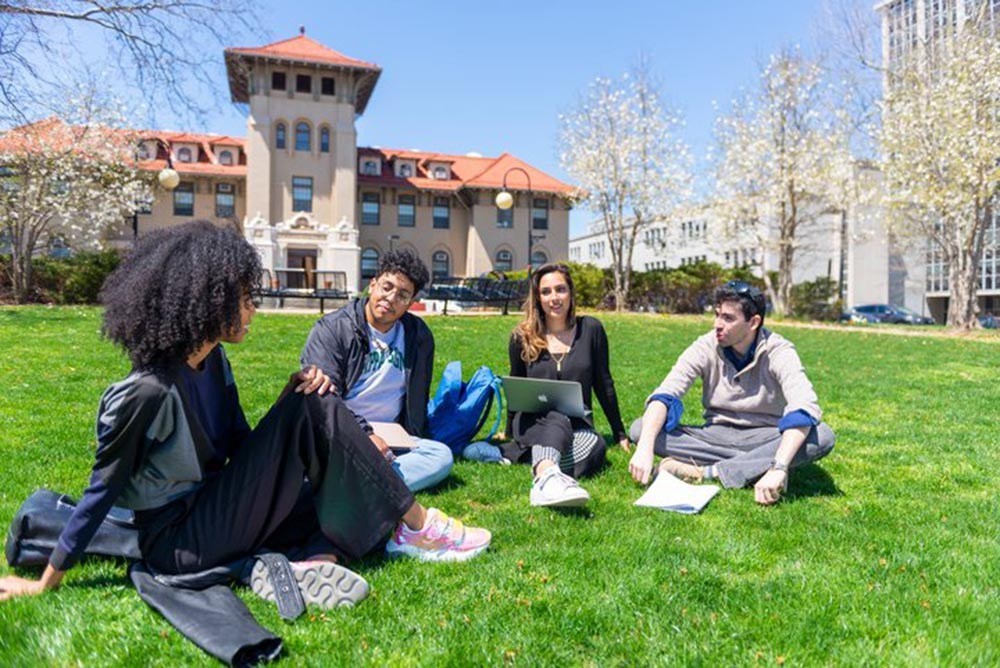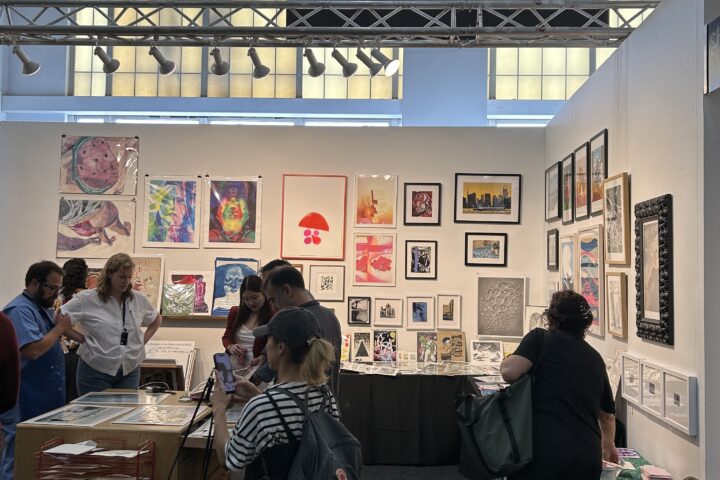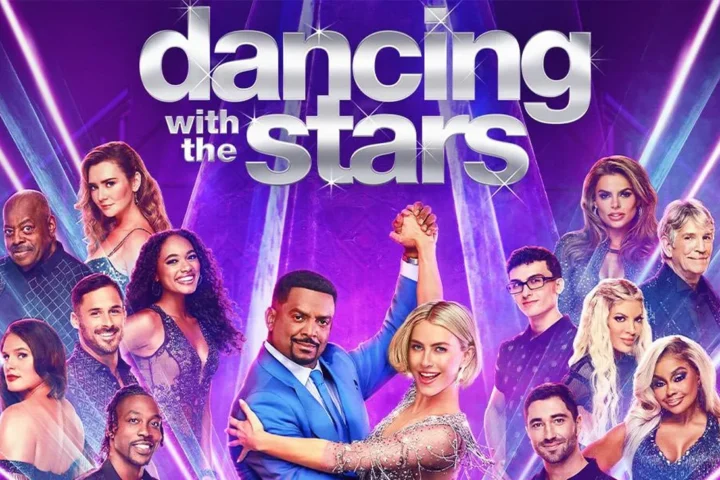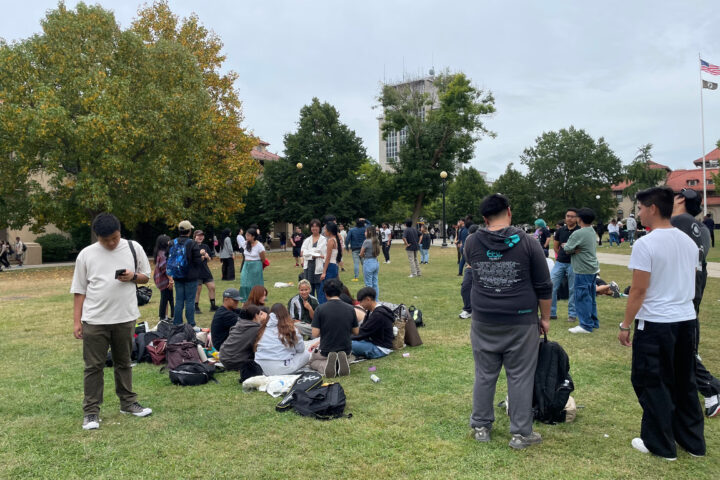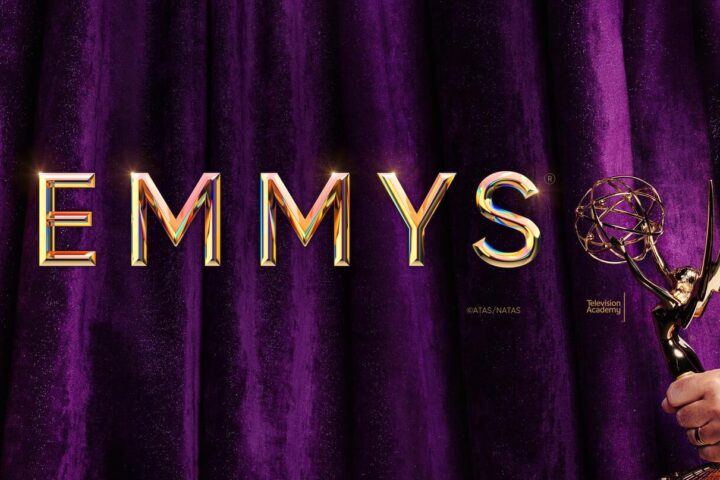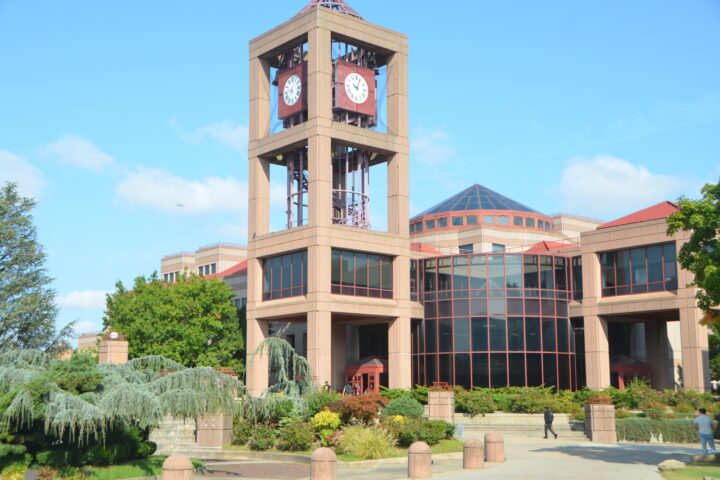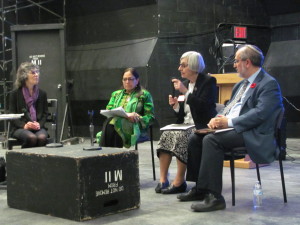
Caption: The Center for Ethnic, Racial and Religious Understanding hosted an event on responses by different religions to climate change. From left to right: Librarian and Greening Coordinator at Central Queens Y Peggy Kurtz, Executive Director of American Society for Muslim Advancement Daisy Khan, Director of Peace, Justice and Integrity of Creation for Sisters of Charity of New York Sister Carol DeAngelo and Co-Founder of the GreenFaith Fellowship Program Rabbi Lawrence Troster.
Religious and secular groups joined together on Nov. 11 at the Blackbox Theater in Rathaus Hall to talk about climate change and solutions to it.
The Center for Ethnic, Racial & Religious Understanding, along with other city-wide groups, created the event to unite groups of different faiths—Christianity, Islam and Judaism—as well as non-religious groups, like the New York Public Interest Research Group.
Yael Rosenstock, director of programming at CERRU, said the organization’s fourth Innovation Exchange program is different than before, as it would feature different sessions.
“This year, we decided to transform the structure into a more participatory event. That’s why, when the Foundation for Ethnic Understanding and the Central Queens Y approached us about doing an Interfaith event on climate change, we felt it was a perfect opportunity to pilot our new model for the Innovation Exchange,” Rosenstock said.
Climate change refers to long-term changes to the Earth’s climate. Stephen Pekar, a Queens College geology professor and a speaker at the event, described some effects, like an abnormal rise in sea levels or record-breaking temperatures, as consequences of global warming.
“You can’t blame this on Mother Nature,” Pekar said.
Pekar additionally referred to the upcoming negotiations in Paris where all countries will meet to discuss an international response to climate change. He said both the talks in Paris and the event highlighted the importance of working together.
“It’s going to be through cooperation, not through competition, that we’re going to solve this problem,” Pekar said
A main part of the event was a panel moderated by Peggy Kurtz, a librarian and greening coordinator at Central Queens Y. The panel mainly dealt with recent and future acts of religious groups in response to climate change.
Sister Carol DeAngelo, director of Peace, Justice and Integrity of Creation for Sisters of Charity of New York, spoke on Pope Francis I’s recent encyclical titled “Laudeto Si,” Latin for “Praise Be.”
DeAngelo urged the audience to read the pope’s encyclical, which offers lessons for all Catholics and non-Catholics in changing their life.
“This is a call to action for all people on the planet,” DeAngelo said.
Daisy Khan, executive director of American Society for Muslim Advancement, warned climate change may led to conflicts over resources. She referred to the Syrian civil war, as an example, where a drought, caused by climate change, was a factor leading to it.
“The erosion of the climate is going to create wars over resources,” Khan said.
Rabbi Lawrence Troster, co-founder of the GreenFaith Fellowship Program, urged unity to launch an effective response to climate change before it was too late.
“We stand together as human beings and I think our message is more powerful because of that,” Troster said.
Afterward, the event held six breakout sessions to learn more about topics like climate science or campus organizing.
Grace Magee, a project coordinator at NYPIRG, organized one session with Ali Kirkpatrick, also a project coordinator, about efforts in politics to act.
Magee said rejecting the proposed Port Ambrose pipeline, vetoed by New York Governor Andrew Cuomo Nov. 12, was one way people can act on climate issues.
“It supports liquefied natural gas that encourages fracking and other sources of dirty fuel. We really need to move away from that to clean sources of energy,” Magee said.
Overall, Magee said students should not feel apathetic as they could make a difference on climate change.
“We have a responsibility in this generation to think outside the box for everything,” Magee said.








